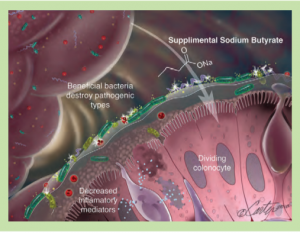The use of food, herbs, and other alternative practices as therapeutic modalities to heal illness and acute/chronic disorders is not a new concept. Ayurvedic medicine (also called Ayurveda) is one of the world’s oldest medical systems. Its origins began in India more than 3,000 years ago and are still one of the country’s traditional healthcare systems. Conceptually, it promotes the use of herbal compounds, special diets, and other unique health practices to regain and promote health. Similarly, ancient healers, still in practice in Bali and known as balian taksu, draw power from nature or spirits and create medicine from holy water, flowers, and plants. In modern times, Western medicine in medical veterinary practice has replaced many of the traditional forms of healing, however , Western medicine is based on the use of drugs to simply mask symptoms of a disease or disorder. Many illnesses are continually “maintained” in an endless cycle of symptoms and then treatment, while the core issue remains unresolved.
We see this in the veterinary and equine industry frequently with an ongoing stream of antibiotics, injections, and medications that alleviate a symptom instead of delivering the horse raw materials it needs to enhance its own natural physiological processes in favor of a true rehabilitation. If we focus on nutrient targeted therapy, by feeding the horse therapeutic nutrients in clinically proven dosages, we can move farther away from relying on pharmacological masking agents and toward holistic health and vigor. Using nutrition therapeutically will provide the horse the building blocks it needs to get and stay healthy. In the horse, the digestive tract is vulnerable to dysfunction quite easily and quickly. Stress from confinement to a stall, episodic feeding, and long periods of time with no food to eat, traveling to shows or races, poor training, or medication can all quickly lead to dysfunction in the gut. When this occurs, the immune system is also immediately affected, as over 70 percent of the immune system is in the gut. Horses enduring any type of stress generally will be subject to some level of sub-clinical intestinal dysfunction that will chip away at overall health, performance, and mental stability.
Sodium Butyrate – A Naturally Produced Volatile Fatty Acid
Recent research in digestive health has found several nutritional therapies that can assist the horse in staying healthy while enduring stressors. We as an industry have recognized and embraced the importance of feeding low-starch feeds, the use of pre- and probiotics to keep the gut populated with the correct type and amounts of microbials, and high doses of omega-3 fatty acids to help reduce inflammation of the gut lining. Now, a compound called sodium butyrate, which the horse naturally produces, is proving to be an exceptional nutritional therapy for colon health in the equine. Butyrate is a short chain fatty acid naturally derived from fiber fermentation in the horse’s intestine, however, like the amino acid glutamine, which helps prevent leaky gut syndrome, adding additional butyrate to the diet during times of stress can help maintain a healthy intestinal lining. Supplemental sodium butyrate has been shown to help prevent inflammatory bowel disease, ulcerative colitis, and diarrhea.
It is also beneficial in the following areas:
• Stimulation of digestive enzyme production
• Enhanced development of intestinal villi increasing surface area which improves feed utilization
• Reduction of acute inflammatory responses
• Major energy source for colon cells
Sodium butyrate is absorbed and used by intestinal cells as a main source of energy. Additionally, sodium butyrate is an important regulator of colonocyte proliferation and growth, gastrointestinal tract motility, and microflora composition. It improves bowel peristalsis and movement in the intestinal wall. Sodium butyrate is keenly involved in many other processes, including immunoregulation and anti-inflammatory activity. The pathogenesis of irritable bowel syndrome (IBS) in the horse, a commonly diagnosed gastrointestinal condition, is complex, and its precise causes and mechanisms are varied and still unclear, though clearly the factors listed above are contributors. The use of supplemental sodium butyrate for IBS is a promising natural treatment. Sodium butyrate directly influences the gastrointestinal microbiome. The presence of butyrate-producing bacteria species suppresses the growth of Escherichia coli, Campylobacter spp., Salmonella spp., and Shigella spp. All of these organisms can be opportunistic when the conditions in the gut shift due to stress, making daily supplementation with sodium butyrate a logical and simple way to combat sudden changes in the microbiome.
Sodium butyrate may also play a beneficial role in the treatment of both acute and chronic gastrointestinal infections, which, when undiagnosed, can lead to poor performance, inability to gain or keep weight on, and irritable behavior. The ability of sodium butyrate to decrease concentrations of pro-inflammatory cytokines such as interleukin 8 (IL-8) and tumor necrosis factor-α(TNF-α) has been demonstrated in several studies in multiple species. These findings make the use of sodium butyrate during acute episodes of enteritis and colitis a promising clinical therapy for minimizing damage to the intestinal lining of both the small and large intestines. Relief of acute abdominal pain seems to be a very important aspect of IBS treatment in multiple species.
Sodium butyrate has been shown to have a positive effect on the hypersensitivity of intestinal receptors, which results in a decrease of intra-intestinal pressure. This finding is significant for horses that are crabby when ridden and exhibit aggressive behavior, especially when brushed or saddled, as much of the discomfort they feel during those activities can be due to IBS. All of these actions are of great importance in horses that are affected by acute and chronic sub-clinical colic, enteritis, and colitis, but more importantly, sodium butyrate supplementation on an ongoing basis may help prevent symptoms of these disorders when used prophylactically.
Today’s performance horses endure a lot of physical and emotional stress starting at early ages. As a result, many developmental, metabolic, immune, and exercise-related disorders have evolved. By incorporating nutrient targeted therapies developed to aid and promote structural soundness, optimum exercise performance, strong immunity, enhanced digestive function, and balanced metabolism into the equine diet, horses will hopefully remain healthy, pain free, and productive long into their senior years.
Dr. Amy M. Gill has a bachelor of science in Animal Science from the University of Maryland. She earned her master of science in Equine Nutrition and a doctorate in Equine Nutrition and Exercise Physiology from the University of Kentucky. Dr. Gill spent many years breaking and galloping racehorses and working on the racetrack as an equine physical therapist. Dr. Gill was also the owner of Amber Lane Farm, Inc., in Versailles, Kentucky. The farm services included breeding, foaling, breaking, sales preparation, and representation and rehabilitation. For information, visit www.equiforce.com or email: [email protected]



Interested in supplementing sodium butyrate, read the blog but couldn’t find how to purchase product.
Thank you
Hi Karen – thanks for reading our blog piece on Sodium Butyrate and its application in the horse. We are having tremendous success using MicroBiome Support to address excess fecal water, ulcers in the hindgut, immune disorders, inflammatory bowel disease and leaky gut syndrome. it can be found under the “SHOP” tab on our website – or simply scroll down through the featured products on the Equi-Force home page!
I’m trying to find a way to buy this in Canada. Will you ship the MicroBiome support to BC Canada?
We are happy to ship to you but you are responsible for shipping and customs taxes FOB out warehouse in Lexington KY